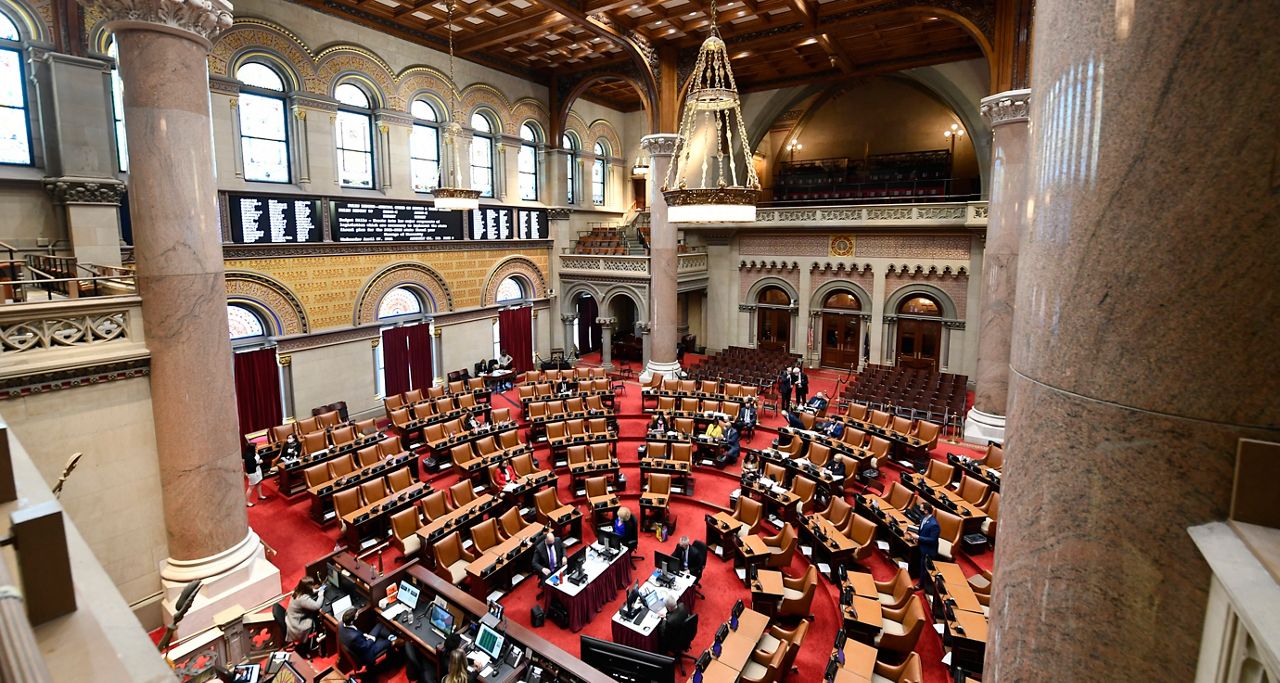The lead-up to the return of lawmakers in the state Assembly has highlighted the power of organized labor in New York politics. It's also served as a reminder of how difficult it can be to corral votes for changes to New York's criminal justice system.
The state Assembly is returning Tuesday and Wednesday to wrap up unfinished business from the regularly scheduled legislative session. Here are four issues to watch.
1. Environmental measures face opposition.
Two bills that cleared the state Senate this month are now the subject of an intense behind-the-scenes lobbying effort.
One bill is meant to hasten offshore wind projects, but has run into opposition from residents in Long Beach on Long Island over concerns that an underground cable would run through the community as part of a key component for the renewal of energy. The measure has the backing of a coalition of environmental groups, business organizations and labor unions who warn that if it doesn't pass, offshore could be set back years in New York (actor and activist Mark Ruffalo tweeted about it on Monday).
Separately, a bill that would ban the dumping of radiological waste into the Hudson River is also facing opposition from a labor group and the company that currently operates the Indian Point nuclear facility as it is being decommissioned. Supporters argue the bill is necessary to protect the ecology and commerce of the river; opponents say enough protections are in place and the pending state bill could cost jobs.
2. Seneca Gaming Compact controversy.
Assembly Speaker Carl Heastie seemingly put to rest the issue last week after he announced the measure authorizing the state to renew the gaming compact with the Seneca Nation of Indians cannot move forward at the moment. The provision, considered pro forma, has run into intense opposition from Rochester-area lawmakers over concerns the renewal could lead to a casino near their community and near a unionized casino in the nearby Finger Lakes region.
The compact can still be salvaged, but given the current opposition the measure would face a steep climb in the chamber at the moment.
3. Criminal justice law changes.
Advocates had hoped the state Assembly could still take up measures addressing convictions and parole in New York. Several lawmakers last week expected that could be easier said than done. The Assembly narrowly passed a measure to automatically seal an estimated 2 million criminal records in New York, a bill that had never cleared the chamber before.
The vote in the Assembly highlighted a divide among Democrats over doing more on criminal justice: Many Democrats from suburban and upstate communities cast votes against the bill known as Clean Slate. Adding measures like making it easier for older people in prison to be released or making people in prison available for parole earlier a major challenge.
4. Union power.
As mentioned, labor organizations in New York have roles in three of these issues. From casinos to construction and the environment, labor unions can and often flex their considerable muscle in New York state politics on disparate issues.
The Hotel Trades Council has been a relatively small, but politically potent labor group whose influence can be seen throughout state government. At the same time, labor has played a key role in drumming up support for renewable energy projects that will be crucial in the coming years as the state seeks to meet its climate benchmarks.


